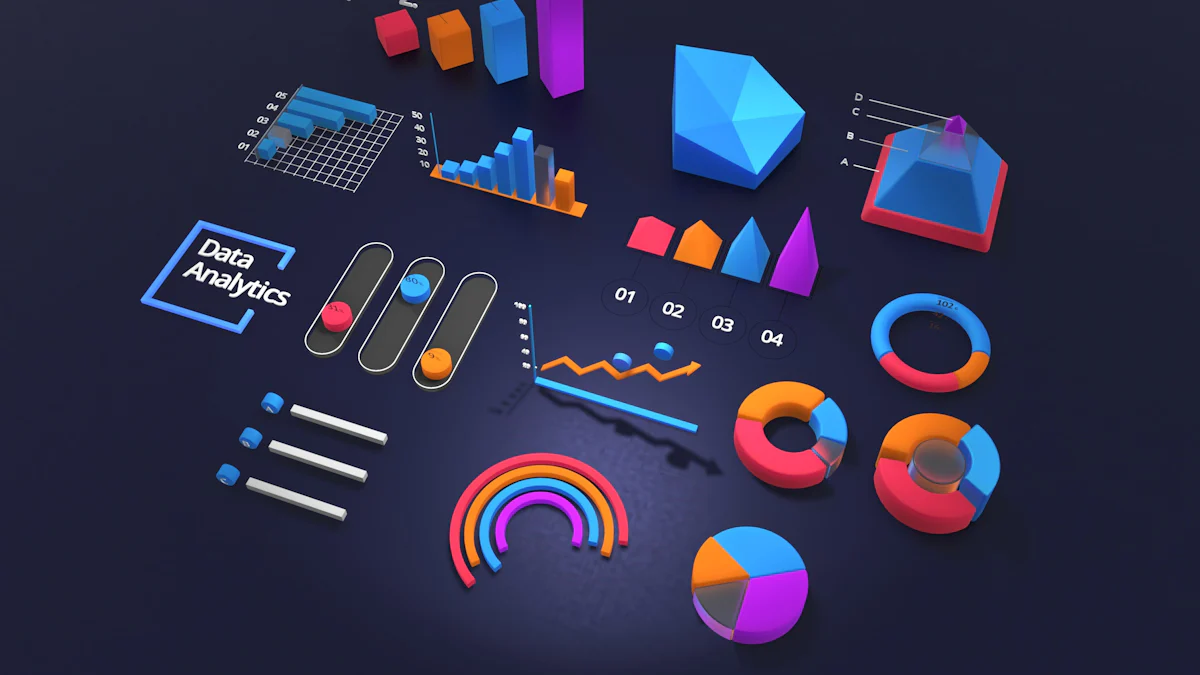What is a Data+AI Platform?

A data+AI platform seamlessly integrates data management with artificial intelligence, augmenting modern businesses' ability to stay competitive. Traditional data platforms have evolved to meet the growing demand for advanced analytics and AI capabilities. Companies leveraging AI through these platforms have seen significant cost reductions and revenue increases. The integration of data and AI allows businesses to adapt to evolving needs. A robust data platform is crucial for data-driven decision-making and AI-driven insights.
Core Components of a Data+AI Platform

Data Management
Data Ingestion
Data ingestion involves collecting data from various sources. A robust data+AI platform supports seamless integration with multiple data sources. These sources include ad networks, app stores, and cloud warehouses. Efficient data ingestion ensures a continuous flow of data into the system.
Data Storage
Data storage is critical for managing large volumes of data. Modern data+AI platforms offer scalable storage solutions. Cloud infrastructure supports this scalability, reducing physical infrastructure costs. Businesses can store structured and unstructured data securely.
Data Processing
Data processing transforms raw data into valuable insights. Data+AI platforms provide advanced tools for real-time data processing. This capability enhances decision-making and resource allocation. Companies can process data efficiently, leading to better outcomes.
Artificial Intelligence
Machine Learning
Machine learning enables predictive analytics. Data+AI platforms offer comprehensive machine learning tools. These tools support various algorithms and frameworks. Businesses can build, train, and deploy models with ease.
Deep Learning
Deep learning focuses on neural networks. Data+AI platforms facilitate deep learning model development. These models handle complex tasks like image and speech recognition. Companies can leverage deep learning for advanced analytics.
Natural Language Processing
Natural language processing (NLP) allows machines to understand human language. Data+AI platforms support NLP functionalities. Tools like DataGPT enable chat-to-analytics interactions. Businesses can democratize data intelligence across their organization.
Integration and Interoperability
APIs and Connectors
APIs and connectors ensure seamless integration between systems. Data+AI platforms provide robust APIs for data exchange. These connectors link various data sources and applications. Integration enhances the overall functionality of the platform.
Data Integration Tools
Data integration tools consolidate data from different sources. Data+AI platforms offer advanced integration capabilities. These tools create a unified data ecosystem. Businesses can achieve coherent and reliable data management.
AI Model Deployment
AI model deployment involves implementing AI models in production environments. Data+AI platforms simplify this process. Automated tools optimize model performance and accuracy. Companies can deploy AI models quickly and effectively.
Benefits of Using a Data+AI Platform

Enhanced Decision-Making
Predictive Analytics
Predictive analytics leverages historical data to forecast future trends. A Data+AI platform augments this process by integrating machine learning models. Companies can anticipate market changes and consumer behavior. This capability leads to proactive decision-making.
Real-Time Insights
Real-time insights provide immediate data analysis. A Data+AI platform processes data as it arrives. Businesses can respond swiftly to emerging opportunities or threats. This agility enhances competitive advantage.
Operational Efficiency
Automation
Automation streamlines repetitive tasks. A Data+AI platform automates data ingestion, processing, and analysis. This reduces manual effort and minimizes errors. Companies achieve higher productivity and efficiency.
Resource Optimization
Resource optimization ensures the best use of available assets. A Data+AI platform allocates resources based on data-driven insights. This leads to cost savings and improved operational performance. Businesses can maximize their return on investment.
Scalability and Flexibility
Cloud Integration
Cloud integration offers scalable storage and computing power. A Data+AI platform utilizes cloud infrastructure to handle large data volumes. This flexibility supports business growth without significant capital expenditure. Companies can scale operations seamlessly.
Modular Architecture
Modular architecture allows customization and adaptability. A Data+AI platform features modular components that can be tailored to specific needs. This design supports the integration of new technologies and functionalities. Businesses can adapt quickly to changing requirements.
Data+AI platforms hold significant importance in today's business landscape. These platforms enable faster decision-making and better resource allocation. Companies can automate complex tasks and uncover hidden patterns in data.
Future trends indicate ongoing innovation in AI technologies. Users will receive prompt and insightful answers to data queries. The roles of data and AI will continue to blur, leading to more integrated solutions.
Data+AI platforms impact various industries by enhancing efficiency and reducing costs. Businesses can make informed decisions in real-time, ensuring a competitive edge. A robust AI infrastructure also ensures secure data handling, addressing privacy concerns.

